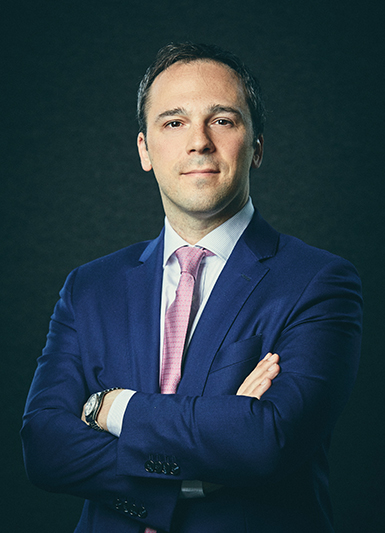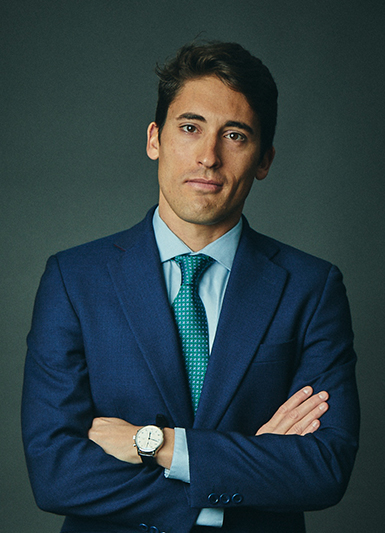Sustainable management in the private equity industry: The path towards a strong ESG culture
ESG (acronym for environmental, social and governance) investing is without doubt a hot theme in the finance world right now, but often there is scant focus (or understanding) of how current trends are directly impacting the day-to-day activity of a typical private equity firm. In this brief article we attempt to provide a bit more colour about some of the most relevant aspects based on our experience to date.
REGULATION AS A FIRST STEP TO FRAME AN ESG STRATEGY
One important dimension is certainly related to regulation. Amongst the many regulations introduced in the last few years, possibly the most relevant is the Sustainable Finance Disclosure Regulation (SFDR), which came into effect in 2021. The SFDR is an EU regulation that sets out the need for financial market participants to disclose sustainability information and help investors to make more informed choices. One important requirement is the need for assets managers to classify their funds under different tiers (i.e., Article 6, 8 or 9). In short summary, Article 6 simply requires a certain level of transparency around the integration of sustainability risks in the investment decision process, the potential impact that such risks might have on returns, as well as the actions to be put in place to mitigate them. The requirements increase substantially if a fund is registered under Article 8, which advocates not only transparency but also active promotion of environmental and social dimensions. Finally, a fund under Article 9 will have to demonstrate a clear positive impact on society or the environment (not having a negative impact would not be enough for an Article 9 fund). Unless otherwise stated, a fund will be classified under Article 6 by default. However, given the current sentiment of the market, it seems that Article 8 classification is the most obvious choice to ensure a sustainable investment portfolio and most fund managers are therefore moving towards that direction.
ESG AS A MEAN TO ACHIEVE HIGHER RETURNS
In addition to regulation, the ever-increasing focus on ESG factors has also started to impact meaningfully investment returns. On one side companies that operate in a sustainable manner are better equipped to address clients (and regulators) current (and future) demand. On the other side, high ESG standards typically translate into a higher appeal for an asset, allowing to better monetize the investment at exit. Indeed, a company operating in a polluting industry may find it very hard, if not impossible, to attract an institutional buyer today. But even good companies with scarce attention to sustainability themes could see their valuation dwindle simply because of a reduced number of interested buyers. Empirical evidence shows us that companies with strong ESG standards do yield higher valuations in the market, and the premium has widened over time. We would argue that rather than regulation per se, this second effect is what is really pushing more and more private equity firms to review their investment strategy, enhance ESG due diligence at entry, as well as come up with ideas to improve ESG performance during the life of an investment.

“Empirical evidence shows us that companies with strong ESG standards do yield higher valuations in the market, and the premium has widened over time.”
OUR EXPERIENCE IN THE ESG JOURNEY
With total assets under management of €2.1bn, Portobello Capital currently manages 7 funds, 3 of which have been registered under article 8 and 1 under article 9 of the SFDR. But regardless of the regulatory designation for specific funds, it is worth highlighting that our journey towards sustainability started many years back. By becoming signatories of the UN Principles for Responsible Investment back in 2012 we were an early mover in committing to sustainability principles. To allow us to put this into practice, we have been monitoring ESG KPIs in our portfolio companies and publishing reports to transparently inform our investors on the practices and impact of the companies we manage since 2015. Today, our processes have been significantly enhanced, incorporating an ESG Committee to monitor the performance of every portfolio company and assess the implementation of a bespoke ESG action plan for each of them, also being supported by ESG expert advisors to be constantly up to date with changes in regulations and requirements as well as sharing of best practices. Over the years, we have seen plenty of examples of how companies can improve their impact. From reducing their carbon footprint by installing solar panels or biomass boilers, to having a significant social impact cooperating with foundations that provide opportunities to people at risk of social exclusion. From reducing waste and materials thanks to lighter or recycled packaging, to improving employee engagement by introducing a better training and career plan. Our experience tells us there are a great number of initiatives that any company, big or small, can put in place to improve their impact.
TOP SENIOR INVOLVEMENT IS ESSENTIAL TO ENSURE A STRONG CULTURE OF SUSTAINABILITY
To make sure that Portobello nurtures a culture and awareness of environmental and social impact, the involvement, engagement and determination from our top management is essential. This is one of the reasons why our management company decided many years ago to publish its own ESG report, where we publicly commit to improve our ESG commitment year over year, setting every time more ambitious goals for our organization and our portfolio of companies.
LAUNCHING SPECIFIC STRATEGIES TO COMPLETE OUR ESG APPROACH
In the past years, we have not only constantly raised our ESG standards, but we have also tried to meet investors demand by launching specific impact strategies. In this regard, we recently closed our first Article 9 fund, Portobello Carbono Verde SCR, which focuses on forestation and reforestation projects. This fund represents a pioneer initiative, being the first ESG fund dedicated to driving large-scale reforestation projects in Europe. We see this project as a natural climate solution on the path towards decarbonisation and energy transition, in line with the Paris Agreement, the European Green Deal and the commitments reached in the last COP27. With an investment capacity of up to €100 million, Portobello Carbono Verde SCR is the largest investment initiative of its kind in Europe. The Fund will promote the reforestation of more than 24,000 hectares over the next five years, involving plantation of 20 million trees and the offsetting of more than 6 million tons of CO2. This project will drive a triple impact in the regions where we operate: an obvious environmental impact thanks to the recovery of biodiversity, a strong social impact thanks to the generation of over 3,000 local jobs, and an economic impact thanks to the direct investment in local economies and abandoned rural areas.
“We recently closed our first Article 9 fund, Portobello Carbono Verde SCR, which focuses on forestation and reforestation projects. This fund represents a pioneer initiative, being the first ESG fund dedicated to driving large-scale reforestation projects in Europe.”
CONCLUSIONS
The beauty of the private equity model as it comes to ESG is the possibility to actively work alongside the management team of its portfolio companies on strategy and implementation and therefore directly influence outcomes. By sharing best practices amongst portfolio companies, private equity firms are uniquely positioned to better sustainability standards in the companies they invest in. But is doubtless that this requires significant focus and effort. Having said that, we expect the financial payoff for firms that do this well to remain significant.
Authors

Antonio Todisco
Partner
Portobello

Marisa González
Investors Relations Manager
Portobello

Joan Llansó
Director
Portobello
Search posts by topic
Advisory (7)
Alternative Investment (24)
Alternative investments (3)
AML (1)
Art (1)
Asset Management (27)
Banking (16)
Capital Markets (1)
Compliance (1)
Crypto-assets (3)
Digital Assets (3)
Digital banking (6)
Diversity (7)
EU (6)
Family Businesses (4)
Family Offices (2)
Fintech (10)
Fund distribution (22)
Governance (8)
HR (9)
ICT (1)
Independent Director (5)
Insurance (2)
Internationalization (1)
LATAM (9)
Legal (10)
Private Equity (4)
Regulation (1)
Reinsurance (2)
RRHH (9)
Sustainable Finance (23)
Tax (15)
Technology (6)
Transfer Pricing (2)
Trends (18)
Unit-linked life insurance (6)
Wealth Management (12)


